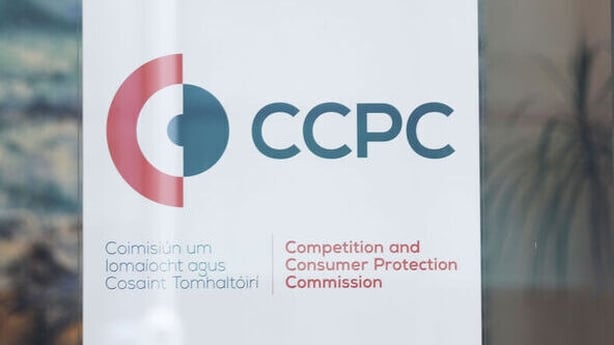The Competition and Consumer Protection Commission (CCPC) has launched a report calling for an online portal that would see used car buyers given free access to car history information, including write-off status and mileage readings.
The CCPC said this would allow consumers to more easily access this information and help limit the number of dangerous, clocked, or poorly-repaired cars on Irish roads.
It said that before buying a used car, consumers must have access to important information about a car's mileage, past accidents, safety recalls, and import status.
Currently, much of this information is collected by the State but is either inaccessible or available only for a fee from commercial car history providers such as Cartell and Motorcheck.
These providers get information from the Department of Transport to create reports.
However, many consumers do not know about these services, the CCPC said.
It added that even when consumers do buy these reports, the information may not always be reliable, because car history providers often have to get details on crash history and mileage from private sources, which might not always be accurate.
This means that many consumers might still depend on the seller for information.
We need your consent to load this rte-player contentWe use rte-player to manage extra content that can set cookies on your device and collect data about your activity. Please review their details and accept them to load the content.Manage Preferences
Other EU states offer public access to car histories
The CCPC also found that Ireland compares poorly with other countries for disclosure of information on used cars.
Twenty EU member states - including Belgium, Estonia and Poland - offer public access to car histories, with the UK, New Zealand and Australia also giving consumers access to essential car history information.
In 2024, the CCPC said it received 3,192 contacts to its national consumer helpline specifically concerning issues related to second-hand cars.

These contacts related to issues including clocked cars, previously crashed cars, excessive repair/resolution times, and recurring faults after repair.
Some consumers also reported issues with misleading advertising and mis-selling.
CCPC Chair Brian McHugh said: "The State can and must close the knowledge gap for consumers.
"Thousands of consumers contact the CCPC helpline every year when things go wrong with second-hand cars.
"CCPC officers carry out regular investigations, inspections and enforcement action, but arming consumers with information is the most efficient and cost-effective way to help safeguard every second-hand car sale in the country.
"What’s more, sharing car history with buyers will protect all road users, helping to keep dangerous cars off Irish roads.
"It is in the public interest to have an open, free and accessible State database of essential car history information."
He added that "a car is one of the most expensive purchases a consumer will ever make, and buyers need accurate information so they can get value for money and a safe and reliable vehicle for them and their family".
Motoring Journalist Geraldine Herbert said that the CCPC did "some research on this a number of years ago and they discovered about 45% of buyers actually check whether there's damage been previously done to the car.
"Very worryingly, one in five do absolutely no checks whatsoever and women are much less likely to check for structural damage than men."
On why the number of car buyers carrying out history checks is so low, she said "there are a number of reasons", adding that "one is cost".
"They see it as an unnecessary expense, said Ms Herbert.
"I think there's also a lack of awareness as to the importance of a history check.
"But there are also a lot of misperceptions. People think if they're buying a relatively new car that they don't need to check it, but the worry there is finance could be outstanding on it.
"Also if they're not spending a huge amount of money on a car they think then there's no point, but there's always a good reason to do a history check."
Department of Transport will review CPCC report
The Department of Transport has said it will review the CPCC report and consider any matters relevant to it in due course.
The department also pointed out that it launched its online Change of Vehicle Ownership in September last year, and that this service provides buyers with the vehicle registration number, make, model, colour, VIN number, number of previous owners, NCT expiry date, tax expiry date, date of registration in Ireland and import status before they proceed with a sale.
It also highlights if the current NCT status of the vehicle indicates a 'Fail Dangerous'.
Insurance companies are required to notify the Department of Transport of vehicles deemed not suitable to be repaired and the Department said it will not allow such vehicles to be registered to a new owner.
This does not, however, include vehicles that the insurers choose not to repair for economic reasons.
Insurance Ireland has welcomed the CCPC report and said it "supports the recommendation that the Minister for Transport should ensure the creation of a one-stop shop online portal for accessing key car history information.
"This will be a great help for consumers, all the more so when it is enhanced to contain information on economic write-offs, vehicle recalls and mileage in line with other recommendations in the report," the organisation said.







